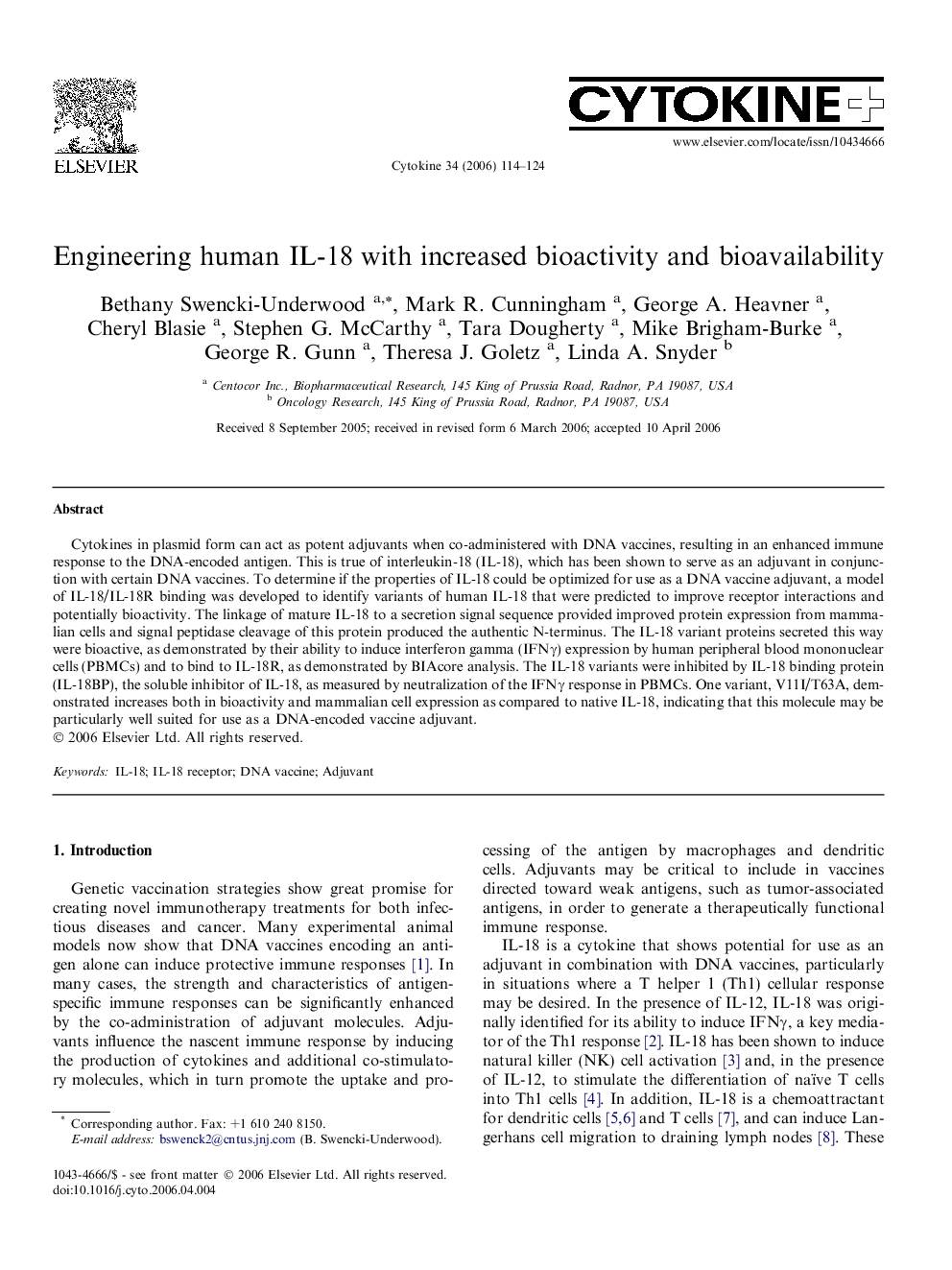| Article ID | Journal | Published Year | Pages | File Type |
|---|---|---|---|---|
| 2796103 | Cytokine | 2006 | 11 Pages |
Abstract
Cytokines in plasmid form can act as potent adjuvants when co-administered with DNA vaccines, resulting in an enhanced immune response to the DNA-encoded antigen. This is true of interleukin-18 (IL-18), which has been shown to serve as an adjuvant in conjunction with certain DNA vaccines. To determine if the properties of IL-18 could be optimized for use as a DNA vaccine adjuvant, a model of IL-18/IL-18R binding was developed to identify variants of human IL-18 that were predicted to improve receptor interactions and potentially bioactivity. The linkage of mature IL-18 to a secretion signal sequence provided improved protein expression from mammalian cells and signal peptidase cleavage of this protein produced the authentic N-terminus. The IL-18 variant proteins secreted this way were bioactive, as demonstrated by their ability to induce interferon gamma (IFNγ) expression by human peripheral blood mononuclear cells (PBMCs) and to bind to IL-18R, as demonstrated by BIAcore analysis. The IL-18 variants were inhibited by IL-18 binding protein (IL-18BP), the soluble inhibitor of IL-18, as measured by neutralization of the IFNγ response in PBMCs. One variant, V11I/T63A, demonstrated increases both in bioactivity and mammalian cell expression as compared to native IL-18, indicating that this molecule may be particularly well suited for use as a DNA-encoded vaccine adjuvant.
Keywords
Related Topics
Life Sciences
Biochemistry, Genetics and Molecular Biology
Endocrinology
Authors
Bethany Swencki-Underwood, Mark R. Cunningham, George A. Heavner, Cheryl Blasie, Stephen G. McCarthy, Tara Dougherty, Mike Brigham-Burke, George R. Gunn, Theresa J. Goletz, Linda A. Snyder,
